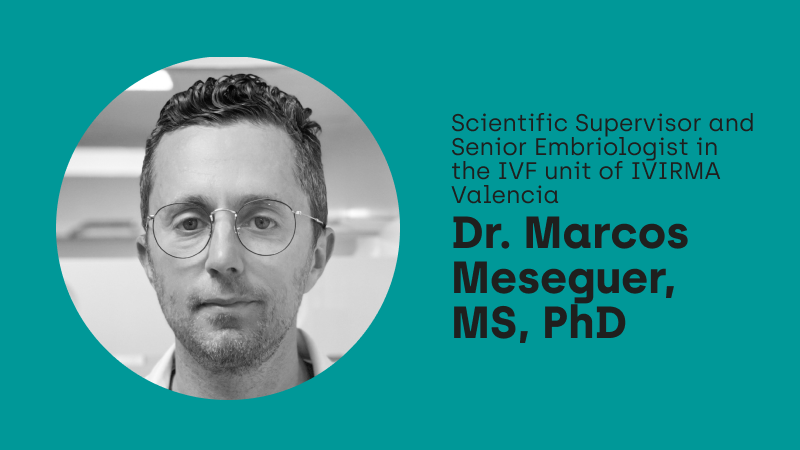


The use of artificial intelligence in the field of reproductive medicine today focuses on the analysis of large amounts of images of eggs, embryos and sperm to provide a better result in reproduction treatments, this should be used as a tool that provides support to both the doctor and the embryologist in decision making. When investigating which embryo is better at the time of embryo transfer and achieving a pregnancy and finally a live newborn, of course there are limitations and in relation to precision medicine a greater use of AI in reproductive treatments is expected. AI aims to be able to offer personalized reproduction treatments to each patient.
Dr. Marcos Meseguer received his Biological Sciences Degree from the University of Valencia in Spain. He performed a pre-doctoral fellowship in St Mary´s Hospital, Manchester University, United Kingdom. He received his Ph.D. Degree in Obstetrics and Gynecology and the European Doctor Degree from the University of Valencia, Spain. He has also a master degree in Research Methods; Design and Statistics from Universidad Autónoma de Barcelona, Spain.
Actually is Scientific Supervisor and Senior Embryologist in the IVF unit of IVIRMA Valencia. Dr. Meseguer has received and nominated twice the prize paper of the American Society of Reproductive Medicine (ASRM), 6 times the Star Award from ASRM. Three times the Lalor Foundation International Award from the American Society of Andrology, three times the research award from the Spanish Society of Fertility and 6 times the research award from the Spanish Society of Embryology. He received the Robert Edwards prize paper award from RBM on line and was ASRM star award winner. The primary areas of his research are embryology and male infertility.
As Principal Investigator, his work has been funded through 25 projects sponsored by the Spanish Government, including 10 EUREKA. Horizon 2020 EUROSTAR projects (granted to high quality technological projects) supported by the European Community). He has two international patents.
He is part of the group of researchers most cited in the world according to Standford University has published over 220 scientific articles, with 11600 citations and h-index of 61, including the most cited paper in Human Reproduction. Additionally published 70 reviews or book chapters, edited the first time-lapse book and made more than 700 presentations at national and international congresses. He has been the Director of 16 Doctoral Thesis all qualified with “Cum Laude”, and actually is directing 7 PhD candidates.
He is also Associate Professor of the Master in Biotechnology from Valencia University.